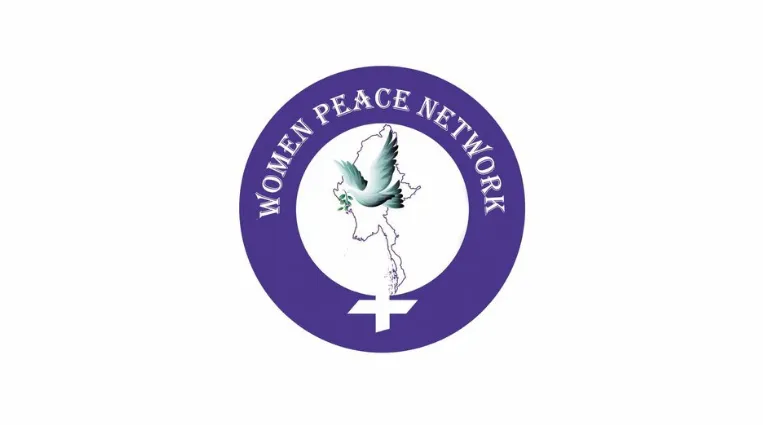Statement on Rohingya Genocide Remembrance Day
25 August 2023

August 25, 2023
This August 25, we, Women’s Peace Network, remember the victims and survivors of the 2017 attacks of genocide against Rohingya in Arakan, and call for justice and accountability for them and the end to all forms of impunity in Myanmar.
Six years ago, the Burmese military launched its “clearance operations” in Arakan, killing over hundreds of thousands of Rohingya, committing arbitrarily arrest and detention, and rape and sexual violence, burning down over 300 of their villages, and forcing over 700,000 of them to flee their homes. The attacks of genocide against Rohingya followed waves of state-sponsored violence against them, thereby exacerbating the decades-long, systematic and targeted persecution against them as a people of Myanmar.
Today, six years later, the survival of the ethnic Rohingya remains at risk now more than ever.
In Myanmar, over two years since its attempted coup, the military that led the 2017 attacks of genocide is now committing crimes amounting war crimes and crimes against humanity across Myanmar according to the Independent Investigative Mechanism for Myanmar, the United Nations High Commissioner for Human Rights, and many other international bodies and entities. The military is also issuing and implementing measures specifically restricting their freedom of movement and other fundamental freedoms against the 600,000 Rohingya remaining in the country, including the 140,000 Rohingya confined in internally displaced persons’ camps. In over two years, the military has used these measures to arbitrarily arrest and detain over 3,100 Rohingya. The military further drastically exacerbated the apartheid-like situation of Rohingya following the arrival of Cyclone Mocha, which devastated Arakan in May 2023, by restricting the full provision of international aid to them.
Across South and Southeast Asia, over one million Rohingya refugees remain denied reliable access to basic needs and livelihoods, as well as safety and security. In Malaysia and India, the refugees also risk detention and forcible deportation to Myanmar. Nearly one million Rohingya refugees are forced to starve to death in Bangladesh without proper access to food; in the camps, Rohingya women refugees particularly risk sexual and gender-based violence, child and forced marriage, and extortion from gangs and militant groups from their community, as well as from local security forces. And if executed, the Burmese military’s so-called “pilot repatriation project” will confine these refugees into concentration and forced labor camps, as well as risk them with further attacks of genocide, in their home: Arakan. As a result, many of these victims and survivors of genocide have had no choice but to face human trafficking, death, rape, and other grave abuses to find safety elsewhere.
Therefore, six years since the 2017 attacks of genocide, the time is now for the international community to act for Rohingya. Countries must support ongoing justice mechanisms, including by referring the situation of Myanmar to the International Criminal Court, as well as explore Universal Jurisdiction to prosecute the Burmese military for its international crimes. Governments must issue economic sanctions targeting the military, its businesses, and access to aviation fuel. The UN Security Council must build its resolution 2669(2022), and urgently exercise its Chapter VII mandate and power to end the human rights and humanitarian catastrophe and bring peace and security to Myanmar and the region, including by referring the situation of Myanmar to the ICC.
We also urge all international and Burmese stakeholders to ensure that the voices and agency of the ethnic Rohingya people, especially women, youth, and other marginalized communities are thoroughly respected. Rohingya must be consulted for any decision related to their situation and future as a people of Myanmar. In this context, all these stakeholders must ensure adequate material and financial assistance to Rohingya and its civil society; recognize the ongoing genocide against Rohingya; recognize Rohingya as an ethnic and religious group indigenous to Myanmar; restore their equal rights, and their access to land and property; guarantee reparations to them; and uphold the representation of Rohingya – particularly women – in its decision-making processes. A just, sustainable, and durable solution for the Rohingya community is one that fully centers on its members, their needs, their hopes, and their vision of justice and accountability.
Six years since the 2017 attacks of genocide, it is time for the world to finally act for comprehensive justice and accountability for Rohingya, as well as their safe, voluntary, dignified, and sustainable return home.
Announcements
21 May 2025
Open letter: Malaysia must lead ASEAN with principle, not hypocrisy, to address the Myanmar crisis

Progressive Voice is a participatory rights-based policy research and advocacy organization rooted in civil society, that maintains strong networks and relationships with grassroots organizations and community-based organizations throughout Myanmar. It acts as a bridge to the international community and international policymakers by amplifying voices from the ground, and advocating for a rights-based policy narrative.